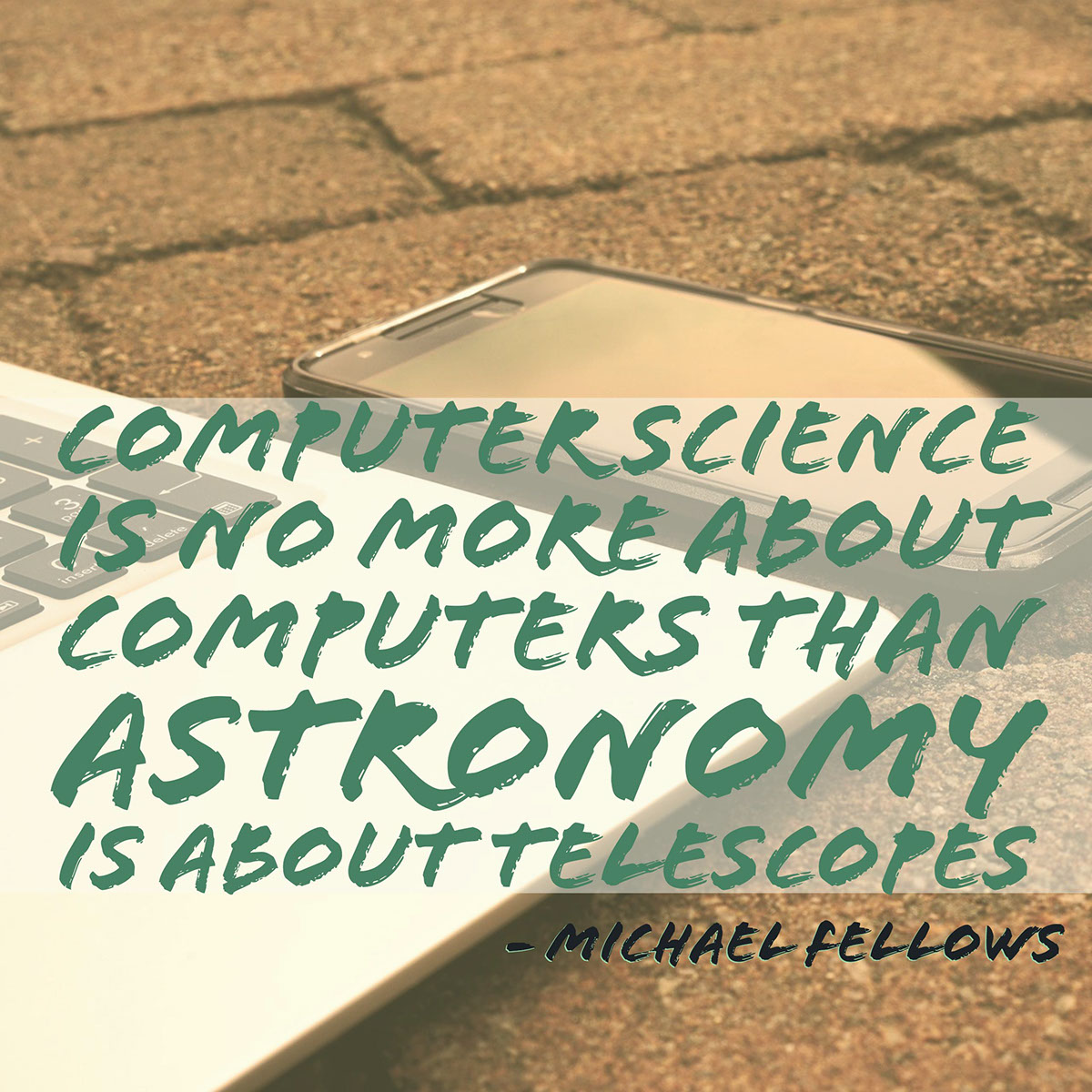 Over the last couple of days I have been immersing myself in CS4PS:Computer Science for Primary Schools - a two-day workshop run by Tracey Henderson and Tim Bell.
Over the last couple of days I have been immersing myself in CS4PS:Computer Science for Primary Schools - a two-day workshop run by Tracey Henderson and Tim Bell.The idea that computer science is not about computers was not a new one for me, but it was a timely reminder. With a recent announcement that digital technology is to 'become' part of the NZ Curriculum (I thought it already was!), I imagine that many teachers are thinking: but we don't have enough [insert preferred device here] in our classrooms to do that!
Over the course of this workshop, I learnt quite a bit about teaching CS in an unplugged way, eliminating the need for a device for every student. And even if you only have one computer in your classroom, you could quite easily set up a station for students to cycle through to complete CS activities.
Throughout the workshop, the why questions came up a lot: Why should we teach CS to five year olds? Why should I be spending valuable learning time on CS? Why should we teach it at all? Reflecting on this, I thought about the skills we're trying to equip kids with. According to CareersNZ, the top 10 skills employers look for are:
- communication skills
- customer service skills – in person, on the phone, and online
- ability to work well in a team
- literacy and numeracy skills
- confidence learning about and using computers and technology
- planning and organisational skills
- initiative and a can-do attitude
- problem-solving skills
- good work habits and independence
- health and safety skills
It could be argued that schooling is about more than creating good employees, and many of the things on this list would be on my personal list of must-haves for good citizenship too. The NZ Curriculum lists also has a list of the "capabilities people have, and need to develop, to live and learn today and in the future." These are known as the key competencies. They are:
- Thinking
- Relating to others
- Using language, symbols, and texts
- Managing self
- Participating and contributing
So, how does learning about computer science enhance the development of all these skills? By developing computational thinking. This teaches kids to problem solve: to break up complex problems into smaller, more manageable parts. It also reminds us to focus on the end-user: the person who will be benefitting from the solution we develop.
So, by teaching computer science and computational thinking, we can develop students':
- thinking (and their ability to think things through logically)
- use of language, symbols, and texts
- confidence learning about and using computers and technology
- planning and organisational skills
- problem-solving skills
And, depending on how we do it, their:
- communication skills
- ability to work well in a team
- ability to relate to others
- ability to self manage
- desire to participate and contribute
This seems like a pretty good hit rate of essential skills!
I'll be writing more on this subject in the coming weeks, to flesh out my ideas around the presentations I attended. These included:
- Teaching binary numbers and computational thinking
- Engaging students using computer 'magic'
- Demonstrating how encryption/secure communication works
- Beebots unplugged
- Debugging (and it's relationship to writing)
- Problem solving using Scratch
- Everyday technology secrets
- Teaching programming concepts within the context of an inquiry unit
If one of these topics is particularly interesting to you, let me know via the comments below and I'll focus on that one first :)
No comments:
Post a Comment